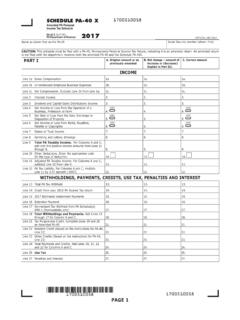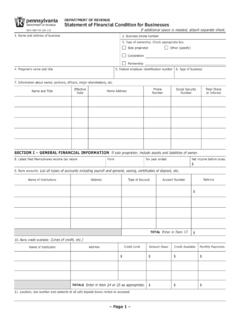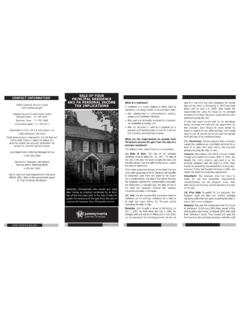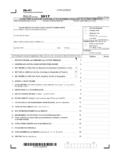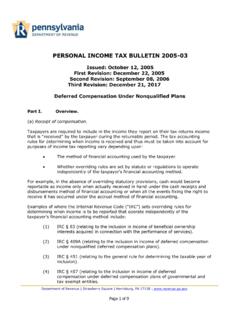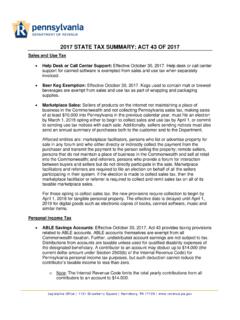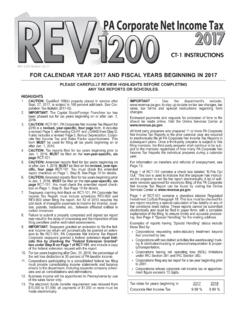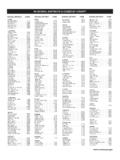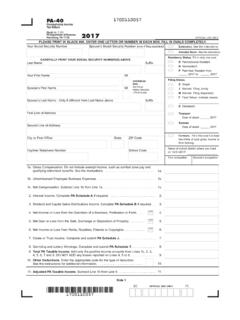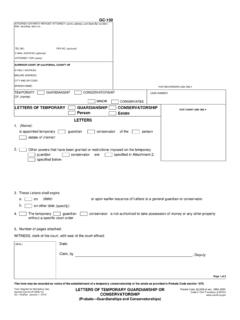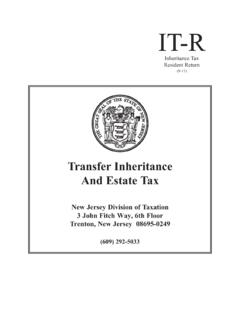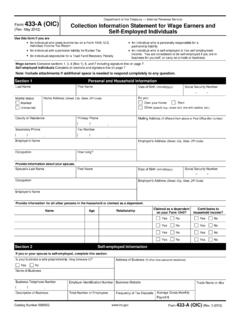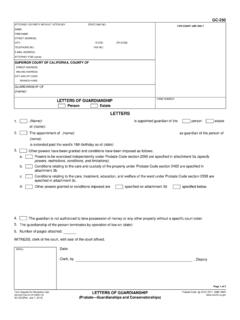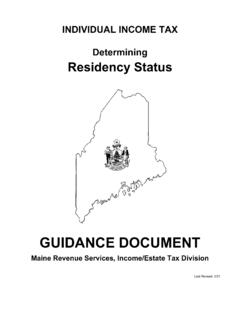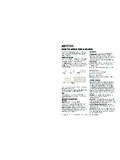Transcription of Brochure: Pennsylvania Inheritance Tax & Safe Deposit …
1 Owned by husband and wife, so long as one spouse remains alive. Who may enter a safe Deposit box after the death of a decedent? Until an inventory of the box can be performed (see below), no one is allowed to enter a safe Deposit box, not even a joint owner, except to remove a will and/or burial instructions, which must be removed in the presence of a bank employee. The bank employee must complete PA Form REV-487 (Entry Into A safe Deposit Box To Remove A Will Or Cemetery Deed) to record the entry and mail it to the PA Department of Revenue. The contents of safe Deposit boxes must be inventoried before they can be removed.
2 Who conducts safe Deposit box inventories. A representative of the estate must be present at the inventory. If the decedent and a surviving joint owner owned the box, the surviving owner should be present. Additionally, an attorney representing the estate may be present. How do I arrange an inventory of a safe Deposit box? An estate representative must provide written notice to the department at least seven days in advance of a safe Deposit box inventory. Complete form REV-1845 (Notice of Intent to Enter safe Deposit Box) and deliver to the department at the address below by the Postal Service with return receipt service, and provide a copy of the notice to the financial institution where the box is located.
3 PA DEPARTMENT OF REVENUE safe Deposit BOX UNIT PO BOX 280600 HARRISBURG PA 17128-0600 At the time of entry, the estate representative must provide a statement to the financial institution verifying notice was provided to the department. Within 20 days of entry, the estate representative must return a completed safe Deposit Box Inventory form, REV-485, to the department s safe Deposit Box (PO) 01-20 Pennsylvania Inheritance Tax & safe Deposit BoxesInheritance tax is imposed as a percentage of the value of a decedent s estate transferred to beneficiaries by will or intestacy. The tax rate varies depending on the relationship of the heir to the INFORMATION For additional Inheritance tax or safe Deposit box information, please call 717-787-8327 or write to the following address: PA DEPARTMENT OF REVENUE BUREAU OF INDIVIDUAL TAXES PO BOX 280601 HARRISBURG PA 17128-0601 Online Customer Service Center Customer Experience Center Personal Taxes: 717-787-8201 Business Taxes: 717-787-1064 e-Business Center: 717-783-6277 1-888-PATAXES (728-2937) Touch-tone service is required for this automated 24-hour toll-free line.
4 Call to order forms or check the status of a personal income tax account or property tax/rent rebate. Automated Forms Ordering Service 1-800-362-2050 Services for Taxpayers with Special Hearing and/or Speaking Needs 1-800-447-3020 Call or visit the Revenue district office nearest you, listed in the government pages of your local phone GENERAL TAX QUESTIONS: Jointly-owned property with right of survivorship, except between husband and wife, including but not limited to real estate, securities and bank accounts, is taxable based on the decedent s interest in the joint property. This interest is calculated by dividing the value of the joint property by the number of joint owners at the time of the decedent s death.
5 Joint property is taxable even in situations where the decedent s name was added as a matter of convenience. Further, if the decedent created the joint interest in the property within a year of his death, the full value of the property is taxable in the decedent s estate, less $3,000. Can funeral expenses and the decedent s unpaid bills be deducted from the amount subject to tax? Yes, unsatisfied liabilities incurred by the decedent prior to death are deductible against the taxable estate. In addition to debts incurred by the decedent or the estate, costs of administration of the estate and funeral and burial expenses are deductible, including attorney fees, fiduciary fees and the cost of the burial lot, tombstone or grave marker.
6 For the sake of convenience, I put my mother s name on my savings account. Recently my mother died, and now I am told I have to pay Inheritance tax on my own money. Is this true? Under Inheritance tax law, the account was jointly owned, since you and your mother had equal access to the account. Therefore, in this case, the survivor is taxed on one-half of the amount in the account. What is the family exemption and how much can be claimed? The family exemption is awarded to certain individuals so they may retain or claim certain types of a decedent s property, in accordance with Section 3121 of the Probate, Estates and Fiduciaries Code.
7 For decedents who died after Jan. 29, 1995, the family exemption is $3,500. Who is entitled to claim the family exemption? The family exemption may be claimed by the spouse of a decedent who was a resident of Pennsylvania . If there is no spouse or if the spouse forfeited their rights, any child of the decedent who is a member of the decedent s household may claim the exemption. In the event there is no spouse or child, the exemption may be claimed by a parent or parents who are members of the decedent s household. The family exemption is allowed against assets passed with or without a is the Inheritance tax rate in Pennsylvania ?
8 The rates for Pennsylvania Inheritance tax are as follows: 0 percent on transfers to a surviving spouse, to a parent from a child aged 21 or younger, and to or for the use of a child aged 21 or younger from a parent; percent on transfers to direct descendants and lineal heirs; 12 percent on transfers to siblings; and 15 percent on transfers to other heirs, except charitable organizations, exempt institutions and government entities exempt from tax. Property owned jointly between husband and wife is exempt from Inheritance tax. Who are direct descendants and lineal heirs for the purposes of Inheritance tax?
9 Direct descendants include all natural children of parents and their descendants (whether or not they have been adopted by others), adopted descendants and their descendants and step-descendants. Lineal heirs include grandfathers, grandmothers, fathers, mothers and their children. Children include natural children (whether or not they have been adopted by others), adopted children and stepchildren. Is there a discount on Inheritance tax? Inheritance tax becomes due at death and must be reported and remitted before nine months pass from the date of death. If payment is made within three months of the date of death, a 5 percent discount of the tax paid or the tax due, whichever is less, applies.
10 What property is subject to Inheritance tax? All real and tangible personal property of a PA resident decedent, including but not limited to cash, oil and gas rights, automobiles, furniture, antiques and jewelry located in Pennsylvania at the time of the decedent s death, is taxable. All intangible property of a resident decedent, including stocks, bonds, bank accounts, loans receivable, etc., is also taxable, regardless of where it is located at the decedent s death. In the case of a nonresident decedent, all real and tangible personal property located in Pennsylvania at the decedent s death is taxable.
